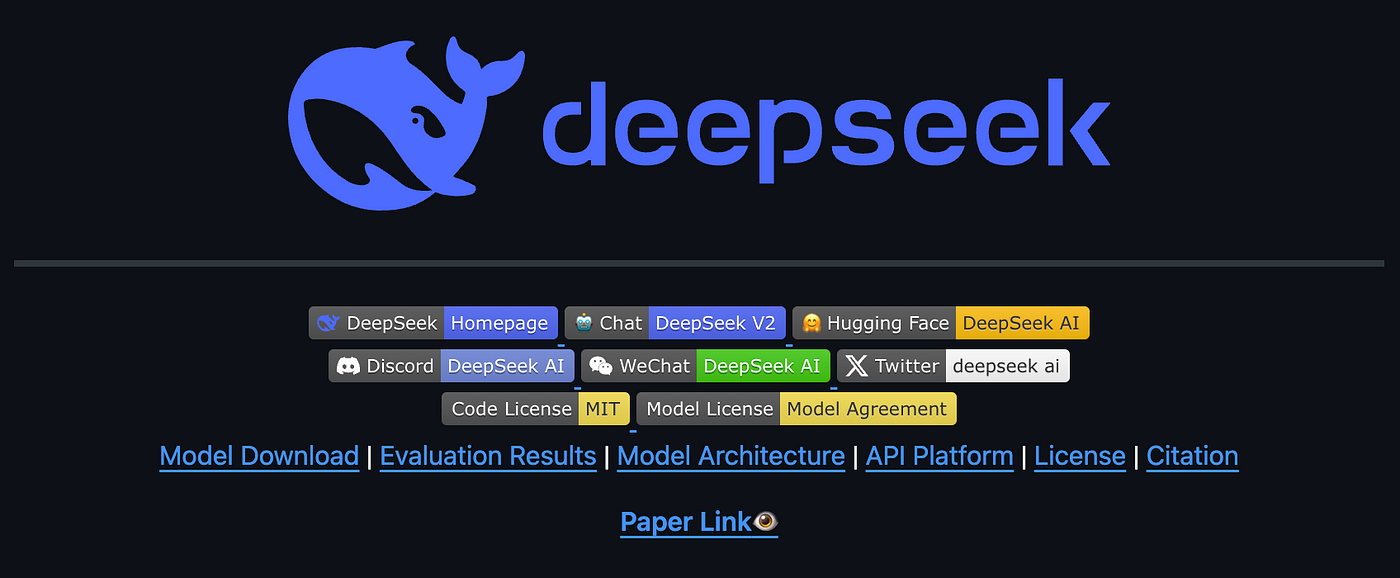Richard Whittle receives funding from the ESRC, Research England and was the recipient of a CAPE Fellowship.

Stuart Mills does not work for, seek advice from, own shares in or receive funding from any business or organisation that would take advantage of this post, and has revealed no pertinent associations beyond their academic visit.

Partners
University of Salford and University of Leeds provide funding as founding partners of The Conversation UK.

View all partners
Before January 27 2025, it's fair to state that Chinese tech business DeepSeek was flying under the radar. And then it came significantly into view.
Suddenly, everybody was speaking about it - not least the investors and executives at US tech companies like Nvidia, Microsoft and Google, which all saw their business values tumble thanks to the success of this AI startup research study laboratory.
Founded by a successful Chinese hedge fund manager, the lab has actually taken a various method to synthetic intelligence. Among the major distinctions is cost.
The development costs for Open AI's ChatGPT-4 were stated to be in excess of US$ 100 million (₤ 81 million). DeepSeek's R1 design - which is used to generate content, resolve logic issues and produce computer code - was supposedly made utilizing much less, less effective computer system chips than the likes of GPT-4, resulting in expenses declared (however unproven) to be as low as US$ 6 million.
This has both financial and geopolitical impacts. China undergoes US sanctions on importing the most innovative computer system chips. But the reality that a Chinese startup has actually been able to build such an innovative design raises questions about the efficiency of these sanctions, and whether Chinese innovators can work around them.
The timing of DeepSeek's brand-new release on January 20, as Donald Trump was being sworn in as president, indicated a difficulty to US dominance in AI. Trump reacted by describing the moment as a "wake-up call".

From a financial viewpoint, the most noticeable effect might be on consumers. Unlike competitors such as OpenAI, which just recently started charging US$ 200 per month for access to their premium designs, DeepSeek's similar tools are currently free. They are also "open source", enabling anybody to poke around in the code and reconfigure things as they wish.
Low costs of development and effective use of hardware seem to have actually paid for DeepSeek this expense benefit, and have actually currently required some Chinese rivals to reduce their costs. Consumers should prepare for lower costs from other AI services too.
Artificial investment
Longer term - which, in the AI market, can still be remarkably soon - the success of DeepSeek might have a huge influence on AI investment.
This is because so far, almost all of the big AI business - OpenAI, Meta, Google - have actually been having a hard time to commercialise their designs and be profitable.
Previously, this was not necessarily a problem. Companies like Twitter and Uber went years without making earnings, prioritising a commanding market share (great deals of users) instead.

And business like OpenAI have actually been doing the very same. In exchange for constant financial investment from hedge funds and other organisations, they assure to construct a lot more powerful designs.
These models, the company pitch probably goes, will massively increase efficiency and after that success for organizations, which will end up delighted to pay for AI products. In the mean time, all the tech companies need to do is collect more information, buy more powerful chips (and more of them), and develop their models for longer.
But this costs a great deal of cash.
Nvidia's Blackwell chip - the world's most powerful AI chip to date - costs around US$ 40,000 per system, and AI companies typically require 10s of countless them. But already, AI companies have not truly had a hard time to attract the necessary financial investment, even if the amounts are substantial.
DeepSeek may alter all this.
By showing that developments with existing (and possibly less innovative) hardware can achieve comparable performance, it has provided a warning that throwing money at AI is not ensured to settle.
For example, prior to January 20, it might have been assumed that the most sophisticated AI designs require huge data centres and other facilities. This indicated the likes of Google, Microsoft and OpenAI would deal with minimal competitors due to the fact that of the high barriers (the large expense) to enter this market.

Money concerns
But if those barriers to entry are much lower than everybody believes - as DeepSeek's success recommends - then lots of huge AI investments suddenly look a lot riskier. Hence the abrupt effect on huge tech share prices.
Shares in chipmaker Nvidia fell by around 17% and ASML, which produces the devices required to manufacture advanced chips, likewise saw its share price fall. (While there has been a slight bounceback in Nvidia's stock cost, it appears to have settled below its previous highs, bphomesteading.com showing a new market reality.)
Nvidia and ASML are "pick-and-shovel" companies that make the tools necessary to produce an item, instead of the product itself. (The term originates from the concept that in a goldrush, the only person guaranteed to generate income is the one selling the choices and shovels.)
The "shovels" they sell are chips and chip-making devices. The fall in their share costs originated from the sense that if DeepSeek's more affordable method works, the billions of dollars of future sales that investors have actually priced into these companies might not materialise.
For the similarity Microsoft, Google and Meta (OpenAI is not publicly traded), the cost of structure advanced AI might now have fallen, implying these companies will have to invest less to remain competitive. That, for wiki.monnaie-libre.fr them, might be an advantage.
But there is now question as to whether these business can effectively monetise their AI programs.

US stocks comprise a traditionally big percentage of worldwide investment right now, and utahsyardsale.com technology companies comprise a historically large portion of the value of the US stock market. Losses in this market might force investors to sell off other investments to cover their losses in tech, causing a whole-market decline.
And it should not have actually come as a surprise. In 2023, a dripped Google memo cautioned that the AI market was exposed to outsider disruption. The memo argued that AI companies "had no moat" - no protection - versus rival designs. DeepSeek's success might be the proof that this is true.







